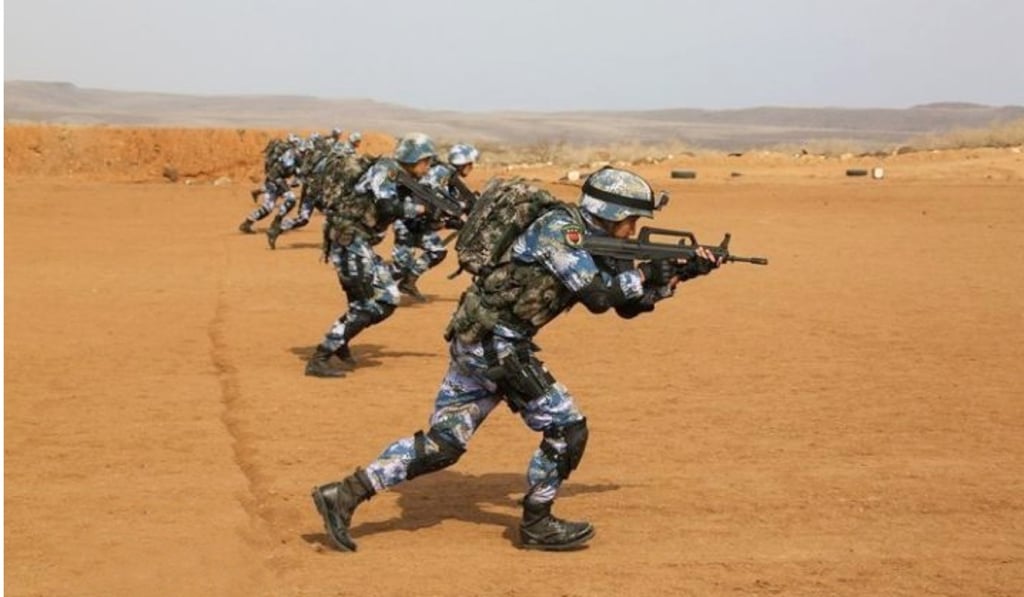China’s Djibouti military base: ‘logistics facility’, or platform for geopolitical ambitions overseas?
Official peacekeeping mission notwithstanding, new outpost has docking facilities that can handle most vessels in China’s naval fleet

Chinese troops at the country’s only overseas military base conducted their first live-fire exercises last week in Djibouti on the Horn of Africa, near some of the world’s busiest shipping routes.
Beijing has described its military outpost as a logistics facility for resupplying Chinese vessels on peacekeeping and humanitarian missions. But satellite imagery and unofficial reports show the base has military infrastructure, including barracks and storage and maintenance units, and docking facilities that can handle most vessels in its naval fleet.
China was the seventh country to establish a military presence in the small African nation, one of the poorest in the region, following in the footsteps of the United States, France and Japan, among others.
But its base in Djibouti – situated en route to the strategically important Suez Canal, at the mouth of the Red Sea – has stoked concerns it would be a platform for Beijing’s geopolitical ambitions overseas.
Here is a quick look at China’s interest in choosing Djibouti.

Strategic location